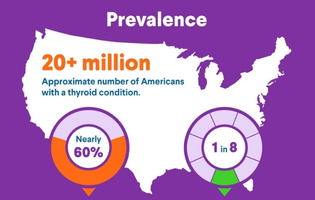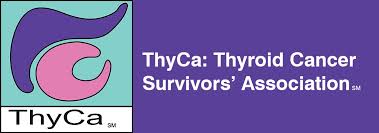Goiter, Nodule, and Thyroid Cancer Treatment Options

Goiter Treatment Options
What are the treatment options for a goiter?
Health care professionals typically treat a goiter only if it is causing symptoms or if it is related to thyroid disease. If your goiter requires treatment, the type of treatment recommended depends on what’s causing it. Treatment options include the following:
- Watchful waiting: When goiter has no medical cause and no uncomfortable symptoms, your health care professional may monitor it over time to watch for changes.
- Medication: If your goiter is caused by a thyroid condition, such as hyperthyroidism or hypothyroidism, your health care professional will prescribe medication for your condition. Medication can provide additional thyroid hormones, slow down your body’s production of thyroid hormones, or block the effect of thyroid hormones on your body.
- Radioactive iodine therapy: Radioactive iodine is a capsule or liquid that destroys overactive thyroid cells over time.
- Surgery: A surgical procedure known as a thyroidectomy removes all or part of your thyroid.
By the Numbers
10 to 15
10 to 15 Percent: The percentage of thyroid nodules that contain cancer cells.
4.7
4.7 Percent: The percentage of people in the United States with goiter.
5
5 Percent: The approximate percentage of Americans age 12 and over with hypothyroidism.
1
1 Percent: The approximate percentage of Americans age 12 and over with hyperthyroidism.
12.5
12.5 Percent: The approximate percentage of women in the U.S. who develop some type of thyroid disease.
Nodule Treatment Options
What are the treatment options for nodules?
The type of treatment you receive for your thyroid nodule depends on what caused it.
- Observation: If your thyroid nodule is benign (not cancerous) and is causing no symptoms, you may need no treatment. Your health care professional will check it regularly to watch for changes, and in some cases, may recommend additional testing.
- Medication: If your thyroid nodule is releasing excess thyroid hormones (hyperthyroidism), your health care professional may prescribe medication to slow down thyroid hormone production or block the effect of thyroid hormones on your body.
- Surgery: If your thyroid nodule requires removal, either because it contains cancer cells or because it is growing large enough to cause symptoms, your health care professional may recommend a thyroidectomy (surgery to remove all or part of your thyroid).
Thyroid Cancer Treatment Options
What if your nodule is cancerous?
If a biopsy discovers cancer cells in your thyroid nodule, your health care professional may refer you to an endocrinologist, oncologist, or cancer center for specialized testing and treatment.
The type of treatment recommended for you depends on the type of thyroid cancer you have and whether it has spread beyond your thyroid. You may have one or more of the following treatments:
- Surgery
- Radioactive iodine therapy
- Thyroid hormone therapy
- Radiation, immunotherapy, or targeted drug therapy are not commonly needed
Follow up with your health care professional
Your health care professional will let you know what follow-up appointments to make with them or with other specialists. Be sure to find out which tests your health care professional recommends and how you can go about scheduling them. If your health care professional recommends testing, be sure to ask how and when you will receive the results of your tests.
For more information about thyroid cancer, visit or partner organization, ThyCa: Thyroid Cancer Survivors’ Association.
By the Numbers
6
6 Percent: The percentage of women who develop thyroid nodules.
1 - 2
1 to 2 Percent: The percentage of men who develop thyroid nodules.
1.2
1.2 Percent: The percentage of Americans who will be diagnosed with thyroid cancer at some point in their lives.
98.4
98.4 Percent: The overall five-year survival rate for thyroid cancer.
43,800
43,800: The estimated number of new thyroid cancer cases in the United States in 2022.
Did you know?
- Thyroid nodules are far more likely to occur in older adults. In fact, older people are 10 times more likely than young adults to have thyroid nodules.
- Your risk of thyroid cancer goes up if you are female, are between the ages of 25 and 65, have a history of goiter, have a family history of thyroid cancer, or have been exposed to radiation in the environment or as part of medical treatment.
- Getting too little iodine in your diet can cause thyroid nodules to form. However, iodine deficiency is uncommon in the United States.





 DOWNLOAD
DOWNLOAD




